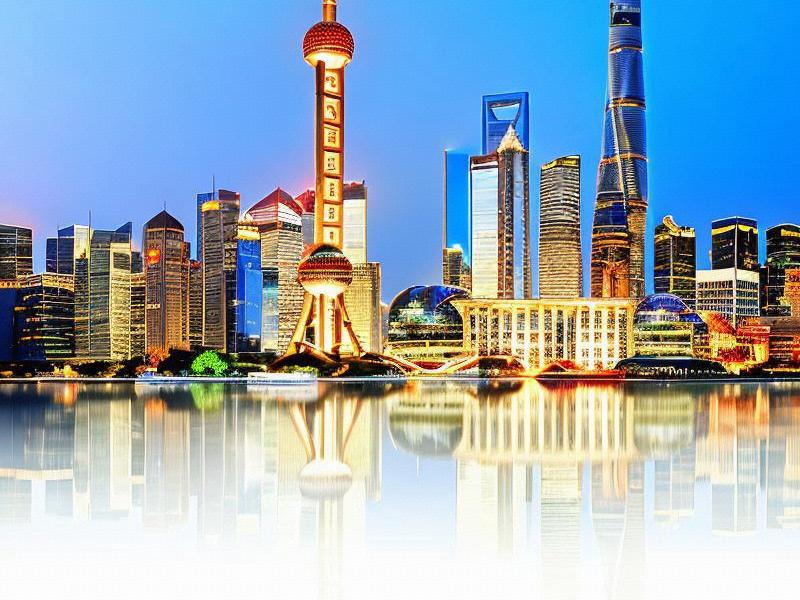Shanghai: A Global Metropolis Shaping the Future of China and the World
⏱ 2025-05-02 12:35 🔖 上海龙凤419
📢0℃

Shanghai, often referred to as the "Pearl of the Orient," stands as a beacon of China's rapid modernization and its integration into the global economy. This vibrant city, with its stunning skyline and rich history, is not just a symbol of China's economic might but also a hub of culture, innovation, and international collaboration.
Historically, Shanghai was a small fishing village that grew into a major trading port during the 19th century. The opening of treaty ports after the First Opium War brought an influx of foreign influence, leading to the establishment of the International Settlement and the French Concession. This period of foreign domination left a lasting architectural legacy that can still be seen today in areas like The Bund and the former French Concession.
The economic rise of Shanghai began in earnest after the founding of the People's Republic of China in 1949. However, it was the economic reforms initiated in 1978 that truly propelled Shanghai into the global spotlight. The establishment of the Pudong New Area in the 1990s marked a new era for Shanghai, with massive investments in infrastructure and the promotion of financial services, technology, and trade.
Today, Shanghai is the largest city in China and one of the world's most important financial centers. The Shanghai Stock Exchange is among the largest in Asia, and the city is home to numerous multinational corporations and international organizations. Pudong, once a rural area, has transformed into a symbol of modernity, with landmarks such as the Oriental Pearl Tower, the Jin Mao Tower, and the Shanghai Tower.
上海贵人论坛 The city's economic success is not just about finance; it is also a hub for manufacturing, logistics, and technology. Shanghai's strategic location on the Yangtze River Delta makes it a critical node in China's domestic trade network. The city's ports, including the Port of Shanghai, are among the busiest in the world, handling millions of containers annually.
Culturally, Shanghai is a melting pot of tradition and modernity. The city boasts a rich heritage that includes the classical gardens of the Yu Garden and the intricate architecture of the former French Concession. At the same time, Shanghai is a center for contemporary art, fashion, and cuisine. The city hosts numerous art galleries, fashion shows, and international film festivals, attracting creatives from around the globe.
Shanghai's culinary scene is renowned for its blend of traditional Shanghainese dishes and international flavors. From the famous xiaolongbao (soup dumplings) to the vibrant night markets, the city offers a gastronomic experience that reflects its cosmopolitan character.
Urban development in Shanghai is a testament to the city's forward-thinking approach. The municipality has invested heavily in sustainable urban planning, with a focus on green spaces, public transportation, and smart city technologies. The Maglev train, which connects Pudong International Airport to the city center, is a prime example of Shanghai's commitment to innovation and efficiency.
上海娱乐
The city's public transportation system is one of the most extensive in the world, with a comprehensive network of metro lines, buses, and ferries. The Shanghai Metro, which began operations in 1993, has expanded to include multiple lines and serves millions of passengers daily. The city is also a leader in electric vehicle adoption, with numerous charging stations and incentives for eco-friendly transportation.
Shanghai's commitment to innovation is evident in its role as a center for research and development. The city is home to several prestigious universities and research institutions, including Fudan University and Tongji University. These institutions are fostering a new generation of scientists, engineers, and entrepreneurs who are driving technological advancements in areas such as artificial intelligence, biotechnology, and green energy.
The city's government has also embraced the digital economy, with initiatives aimed at promoting e-commerce, fintech, and digital services. Shanghai's status as a global tech hub is further enhanced by the presence of companies like Alibaba, Tencent, and Huawei, which have established research and development centers in the city.
上海品茶网 Shanghai's international profile continues to grow through its role in global governance and diplomacy. The city hosted the World Expo in 2010, attracting millions of visitors and showcasing China's achievements and aspirations. More recently, Shanghai has been a key player in the Belt and Road Initiative, fostering international trade and cooperation through its ports and financial institutions.
The city's leadership in sustainability is also noteworthy. Shanghai has set ambitious goals to reduce carbon emissions and promote renewable energy. The development of the Zhangjiang Hi-Tech Park as a center for clean technology and the implementation of green building standards are examples of the city's commitment to environmental stewardship.
Shanghai's future looks promising as it continues to evolve into a global leader in innovation, culture, and sustainability. The city's vision for the future includes the expansion of its international influence, the enhancement of its quality of life, and the promotion of global peace and prosperity.
In conclusion, Shanghai is more than just a city; it is a symbol of China's transformation and a key player in the global arena. Its economic strength, cultural richness, urban development, and innovative spirit make it a model for other cities around the world. As Shanghai continues to grow and adapt, it will undoubtedly play an increasingly important role in shaping the future of China and the world.
【潮涌长三角:上海的半径与圆周】从外滩灯光到江南水乡的共生密码Shanghai's Vibrant Cultural Scene: A Blend of Tradition and Modernity【霓虹与素笺】上海女性的百年气质图谱Shanghai 5250: Quantum Leisure Singularity and the Galactic Nightlife Matrix【城市观察】文化魔方的三原色:上海剧场、书店与美术馆的共生实验Shanghai's Nightlife Renaissance: Where Imperial Heritage Meets Quantum Innovation【霓虹密码】上海娱乐会所的时空折叠术Shanghai's Smart Nightlife Ecosystems: Blending Imperial Heritage with AI-Driven Innovation【量子上海】在11个维度中同时绽放的魔都镜像(1850-2025)Shanghai's Finest Women: A Story of Resilience and Excellence

